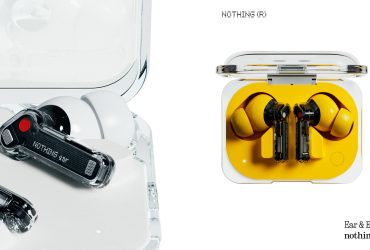The latest candidate in our series of Q&As with influential women in the technology business in Canada is Lola Kassim, Director and General Manager, Uber Eats Canada.
Name: Lola Kassim
Job Title: Director and G.M., Uber Eats Canada
Years in the Industry: 4 Years
The Quote That Most Inspires You: This is perhaps more of a mantra than a quote: “Girls can do anything”. I was fortunate to have been raised in an environment where my parents, my teachers, and my peers 100% believed this message and consistently repeated it. In times where I’ve doubted myself as a girl and as a woman, I’ve turned to this to ground myself and boost my confidence.
What drew you to a career in the consumer and/or business technology industry?
I’m not by nature the most tech-forward person. I’m often the last of my friends and family to adopt new technologies, for example. So, what drew me to a career in tech was the opportunity to have a positive impact on people’s everyday lives – and that’s something that truly motivates me.
I joined Uber as the G.M. for our ridesharing business in West Africa and was excited by the opportunity to create and support economic opportunities for tens of thousands of drivers, while at the same time providing safe and reliable transportation options for city-dwellers from Lagos, Nigeria to Accra, Ghana.
Now that I’ve moved back to Canada to lead the Uber Eats business, I feel grateful to be working at a company whose technology has played a pivotal role in helping restaurants manage through the pandemic whilst providing earning opportunities for couriers and providing consumers a convenient way to support their local businesses during a challenging time.
Have you encountered any roadblocks along the way that were related to your gender?
There have been several points in my career where people have been confused to see someone with my profile or background in my role – whether as a young, ambitious public servant, a management consultant, or now a tech executive. I choose not to see these instances as obstacles, but rather opportunities for me to demonstrate what I can do and make it clear that I’m just as capable (if not more so) than someone with a more traditional profile of doing the job set out for me.
What unique characteristics or perspective do you feel you bring to your organization as a woman?
One trait I have that people often associate with women is the ability to multitask and prioritize. As the Canada G.M. of Uber Eats, I’m required to problem-solve in so many areas, whether operations, strategy, or policy with so many different stakeholders at the same time. Prioritizing and juggling these balls is a constant challenge that keeps me on my toes but it’s something that I love and enjoy.
Being a woman who has worked in various environments ranging from extremely homogeneous to quite diverse, I also bring the perspective of how important it is to have a diverse team and to create an environment where people with different skill sets and perspectives feel comfortable being themselves and sharing their views. This may require restructuring meetings so that different voices feel encouraged to participate or setting aside time as leader to speak to team members one-on-one. I’ve faced instances as a student and professional where I didn’t feel particularly encouraged or inspired to share my views, so providing different avenues for people to express themselves without fear of judgement is something that’s important to me.

Technology is historically a male-dominated industry, yet the use of tech is fully embraced by women, and many studies even suggest that females are the primary buyers of tech in the home. What do you feel the technology industry needs to attract more women, particularly into high-level positions?
First, I think people just need more visibility into the fact that there are successful women leaders across the industry. This Women in Tech section that’s profiling women leaders is fantastic and I believe we need more of that. The more that people see tech leaders who come from a variety of backgrounds – whether gender, race, cultural, academic, et cetera – the better. I’d also say that the industry needs to make it clear that there is a whole range of functional expertise that’s critical across the industry, which means that women who are interested in careers in tech can come from a whole host of backgrounds. I manage a country P&L for a major tech company, but I studied social science, have no technical background, and don’t have an MBA. I have the privilege of working with people across marketing, communications, government relations, engineering, operations, legal, security, design, et cetera, and all these skill sets are highly valued within the sector. Prior to joining Uber, from the outside looking in, that wouldn’t have been clear to me.
If you had to sum up what it is like being a woman in this male-dominated technology industry in just a few words, what would you say?
While there are times when women may have to fight to get a word-in edgewise, women can also take advantage of the element of surprise. “Wow”-ing people who have underestimated you feels good but also helps set a great example for other girls and women.
Are there other women in the tech industry who inspire you?
There are too many, but I’m particularly inspired by women who speak out on issues to help create change that will benefit other women to come.
What are some of the misconceptions/myths about women working in the technology space that you’d like to dispel?
While people may not openly say it, I do think that people have a bias to assume that women and other members of underrepresented populations in senior positions in the technology industry and other “hard” industries got to their position for reasons other than their competence and hard work. For example, there can be an underlying assumption that people have made their way because they’ve gotten a leg up as “diversity candidates” or thanks to special programs to promote diversity, equity, and inclusion. These initiatives are important to help correct structural imbalances we face in the industry and in society. But no one should assume that a woman in a particular position would not have gotten the role on her own skill and merit.
What’s one thing you wish was done differently in the industry, and why?
This may not be true across the board, but I think many organizations can do a better job helping younger employees understand what a career in the industry could look like. Many of us have had career journeys that look nothing like those of our parents and I’m sure career paths will look very different in the next 20 years. I think that sharing more examples of the varied pathways that people can have within the industry could help inspire more young people to visualize future career paths.
Are you optimistic for the future in general and for the industry?
Definitely. I’m fortunate to work at a company and in a role where I get to interact with younger generations all the time – whether they be people interested in building the future of the industry or using technology to improve the way we do things in another industry. The open-mindedness, curiosity, and brilliance of youth keeps me extremely excited about the future and what’s to come.









